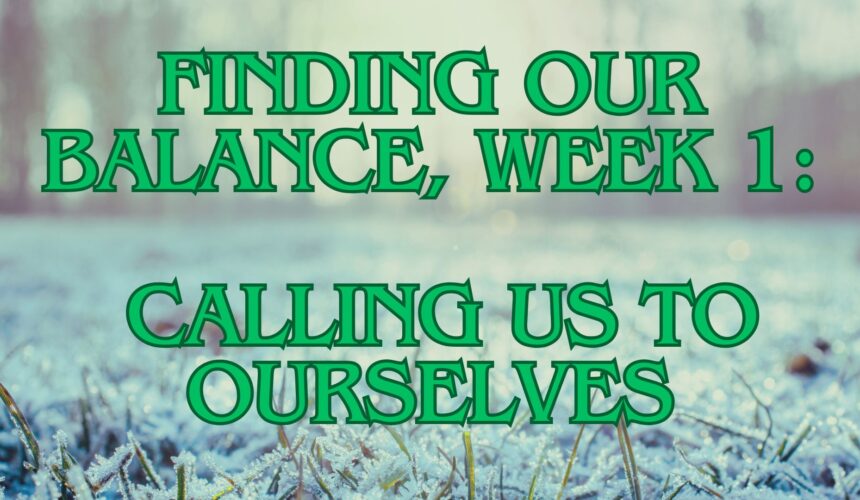February 2, 2025
John 7:45 – 53
If you’ve read much American history, you might have heard about what’s called the Brooks-Sumner incident of 1856. On May 22nd of that year, about five years before the civil war started, U.S. Representative Preston Brooks of South Carolina, a pro-slavery Democrat, walked into the Senate Chamber with two of his friends, fellow South Carolina Congressman Laurence Keitt and Virginia Representative Henry Edmundson. The three of them walked across the floor of the Senate to the desk of Senator Charles Sumner of Massachusetts, a passionate anti-slavery leader who had given a powerful speech a few days before in which he ridiculed and maligned Brooks’ pro-slavery views, mocked his speaking ability, impugned his moral character, and made a few remarks about one of his family members.
When they reached Sumner’s desk, Brooks told him that he found the speech offensive and insulting. Sumner tried to stand up and confront Brooks, but before he could Brooks cracked him in the head with a heavy cane he carried. Sumner fell on the floor almost unconscious, and Brooks continued beating him for several minutes. At a point, Sumner did manage to stand up and try to get away, but he was staggering and disoriented from the blows to his head and he couldn’t see because he had so much blood in his eyes. Brooks eventually hit him so hard that the cane snapped in two, after which Brooks continued to beat Sumner with one end of the cane that had a heavy gold knob on it. Other Senators tried to jump in and stop the attack, but Brooks’s two friends, Keitt and Edmundson, pulled out their own canes and pistols and ordered everybody to stand back. In the end, Sumner nearly died. He was re-elected to the Senate, but it was nearly three years before he was healed up enough to take his seat in the chamber again. So this was not a few light taps. It was not a warning. This was a savage beating, conducted in full view of multiple witnesses, on the floor of the United States Senate.
Now I wish I could tell you that everyone who saw or heard about the attack was horrified. I wish I could say they all realized they needed to step back and moderate their actions and their rhetoric so they could at least try to prevent the civil war that everybody could see coming. But we all know that’s not what happened. We know it because the more or less constant killing in Kansas and Missouri – the period that was often called “Bleeding Kansas” – had already begun. We know it because five years later the civil war did start. And, sadly, even if we didn’t know those things, we could look around us and make a pretty good guess about how people reacted based on what we see in our own world right now.
Not surprisingly, reactions to Brooks’ attack on Sumner depended on what side of the political divide you occupied, or where you lived. Free states thought it was a disgrace. Huge rallies were held in support of Sumner and the antislavery cause, demanding that Brooks and his two allies be prosecuted for assault and attempted murder. Newspapers in the North wrote that slavery was clearly so evil that even the Slave States could no longer defend it in words; violence was their only option. In the New York Evening Post, William Cullen Bryant wrote, “Has it come to this, that we must speak with bated breath in the presence of our Southern masters? … Are we to be chastised as they chastise their slaves? Are we too slaves for life, a target for their brutal blows, when we do not comport ourselves to please them?”
In Slave states on the other hand, Brooks became a hero. He received hundreds of canes in the mail as congratulatory gifts. One of them was even inscribed with the words, “Hit him again!” The Virginia newspaper the Richmond Enquirer called Brooks’ attack on Sumner (quote) “good in conception, better in execution, and best of all in consequences for these vulgar abolitionists in the Senate.” People said the caning never happened, or that Sumner faked his injuries. They said the cane wasn’t heavy, or it never broke, or Brooks only hit him a few times. They said Sumner exaggerated the whole thing. We’ve heard this, right?
In the end, Brooks was tried for assault and had to pay a fine of $300. He was re-elected to the House of Representatives and returned as a hero, at least among the people of South Carolina. Keitt, his accomplice in the attack, was censured and forced to resign, but immediately won re-election to the House. A year or two later he attacked another Congressman on the House Floor during a debate; he hit him and tried to choke him. The house held a vote to censure Edmundson, the second accomplice, but that failed and he continued his political career with no real consequences. Later, he too violently attacked other politicians who opposed him.
Now I want to say two things here. First, there are some encouraging signs in our country’s current continued rush to polarization and violence. For one thing, according to a nonpartisan research center called the Council on Criminal Justice, and according to the Brennan Center for Justice, which is kind of a think tank on crime policy, between 2020 and the end of 2024 gun violence declined. Some forms of violence are still above where they were in 2019, and other crimes went up: shoplifting, burglary, car theft, stuff like that. But over those four years, gun violence actually went down. In fact, you may have heard that about a week ago New York City went five consecutive days without a single shooting. This has not happened in New York for 30 years. Now granted, four minutes after the five day streak was announced, a man was shot in a violent altercation and went to the hospital. But let’s take the win where we can get it, right? Things are not all bad, is what I’m saying.
And I think kind of similarly, we could say that today in the US House and Senate, things have been worse. We’re not to the level of hatred and personal insults and poisonous rhetoric and violence of the Brooks-Sumner incident. At least, not yet. And even though it kind of looks to me on some days like we’re headed that way, like I said, things are not all bad. I think there might still be ways we can save ourselves. And maybe the church, the body of Christ, is called to exactly that work.
You know, ever since our most recent Presidential election, I’ve heard people across the political spectrum say similar things. Republicans, Democrats, Trump supporters and Trump detractors, people whose affiliation I don’t know, they’ve all been talking the same way about our political scene. Lots of people have told me, “I just can’t watch this. I’m done. Too much chaos, too much hatred. I can’t do it anymore.”
I think in some ways, that’s actually a healthy response. It’s the recognition and the rejection of the toxicity in which we’re all living. There is a 24/7 outrage machine going full blast right now, trying to bait every single one of us into righteous hatred, into a refusal to listen, a refusal to open ourselves to the humanity of those who are different than we are, or with whom we disagree. And to say we’re not going to take part in that, I think that can be a healthy first step.
But I also think that as Christians, we’re called to do more than just sit it out. There’s a long history of Christ-followers who have tried to shape the social and cultural conversation of their day into something more compassionate, more merciful, more aware that every human being is infinitely beloved of God. That’s not necessarily to take a particular policy position, but rather to take a certain stance of respect and reverence toward the beauty and holiness of God’s creation, recognizing that every human being is part of that beautiful and holy creation.
So today and for the next few weeks, I want to spend some time talking about some of the resources of our faith tradition that may help us keep our balance in these very difficult times. We may be able to find the balance between a constant adrenaline-fueled state of outrage on the one hand, and hiding our eyes or looking away on the other.
Nicodemus the Pharisee is one of my favorite characters in the Gospel of John. I love him because he appears three times in the Gospel, and each time he seems to be finding the message and life of Jesus more and more compelling. The first time we see him, he comes to Jesus at night because he’s a man of standing. He has a reputation to protect. He doesn’t want to be seen consulting this upstart peasant rabbi. But when he sits down and talks to Jesus, he says, “Rabbi” — Nicodemus gives Jesus the respect of the title — “Rabbi, we know you are a teacher sent from God. No one could do the signs you do apart from God.” So even though he’s been told that Jesus is the enemy, Nicodemus begins by opening himself up the to new possibilities embodied in this man who he’s been told to hate
And somehow that conversation must have an effect on him, because the second time we see Nicodemus is this passage from the 7th chapter of the Gospel that we heard a few minutes ago. Jesus’ enemies are trying to have him arrested, and Nicodemus is the only one who speaks up. He’s a Pharisee. He’s highly educated in Jewish law and scripture, and he reveres his tradition and the way it leads to relationship with God. So Nicodemus asks, “doesn’t our law say that we can’t judge anyone without at least giving them a hearing?”
Of course, all the other scholars and leaders there shout him down. They don’t engage in legal argument or theological reflection. They just attack Nicodemus personally. They insult him: “oh, you’re probably a Galilean too,” they say. A”nd don’t you know the Bible? Scripture says no prophet will ever come from Galilee.”
The telling thing about their reply is that all these scriptural and legal experts are blinded with their own need for power. They’re obsessed with their own agenda, and so they get the scriptures wrong. Scripture doesn’t say that no prophet will come from Galilee, and in fact the Book of 2nd Kings specifically says the prophet Jonah comes from a town in Galilee.
So Nicodemus does a beautiful and faithful thing. He tries to call his fellow Pharisees back to themselves. In a moment when they are betraying their own spiritual heritage, Nicodemus invites them to remember who they are. We don’t do this, he says. This is not who we are. We don’t condemn people without at least listening to what they have to say.
Now, it’s true that he’s shouted down and ignored. And it may be that if we try to do what Nicodemus does, try to ground ourselves in the best parts of our Christian tradition, and live by that tradition, we will be shouted down and ignored as well. But I’ve seen enough over the years to believe that those efforts are never wasted. Even if we don’t see it, even if we don’t know it, our actions can give others hope and courage. And who knows where that stops?


